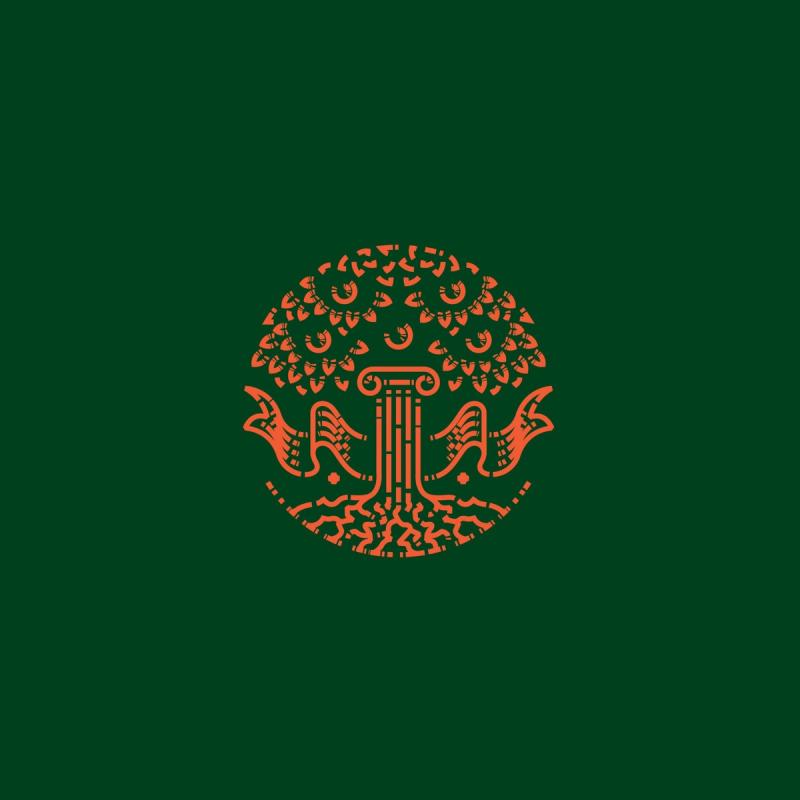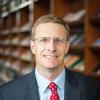On June 8, 1554, John Calvin labored, as usual, in haste. “I have no time to write at the moment,” he told Guillaume Farel, “because it is nearly time for my theology lecture, and I have not yet had the opportunity to reflect on what I will say.” [1] This concern is replicated in various forms across Calvin’s correspondence—so much so that friends and colleagues often framed their requests of the notoriously overworked Reformer with great delicacy. Pierre Viret observed:
I was expecting a letter from you complaining that I write to you too infrequently, but you are so busy that you do not even have enough time to utter reproaches. For my part, though I have much more time than you, I do not want to complain of your ongoing silence. On the contrary, I am amazed that you can still manage to send me a few words.[2]
Yet Calvin’s comment to Farel raises an intriguing question, beyond how he filled his diary, one so obvious perhaps as to escape notice: How did Calvin know that the lecture hour drew near?
The answer, alas, is not clear. There is no evidence to suggest that Calvin owned a wall clock. Philip Melanchthon, by contrast, who was obsessed with time and history as keys to scientific knowledge and providential reassurance, who loved to quote Gregory of Nazianzus quoting Paul to the effect that “God is the beginning and ending of all things,” owned a pocket watch.[3] Theodore Beza also seems to have owned a watch.[4] But Calvin—like most of society—did not. Since Calvin lived next door to Saint Pierre Cathedral, he no doubt heard the bells and perhaps the cathedral crier. He may have been a careful listener to his “inner clock.” We cannot know with certainty. In any case, we do know that Calvin regularly took note of temporal reference points, which reveal a remarkable fascination with time.[5]
Historians suggest that this was hardly peculiar: “For the guilty, secret obsession of early modern society was neither sex nor money, but the desperate desire to use time well and the pervasive fear that wasted time would waste those who abused it.”[6] In fact, Protestants thought long and hard about time—what to do with it, how to measure it, how to order it. True, Augustine’s Confessions contained famous passages on time, patricians long followed set daily schedules, impressive city clocks adorned medieval cathedrals and town halls in Strasbourg, Prague, and many other places, and both classical authors and Renaissance humanists abhorred idleness. But the Reformation apprehension of time carried with it both wide-ranging attention and deep-penetrating piety.
The “ordering of time” was a central tenet of the rigorous discipline of the Genevan Consistory and the Scottish kirk. The moral man must diligently and honorably fulfill his duties before God in each sphere of life as part of the well-ordered community. There were also more practical and experiential dimensions. The church calendar shifted its emphasis from feast days to the Lord’s Day. Beginning in the sixteenth century, moreover, Protestant churches began to feature an hourglass or sand-timer. In Saint Pierre Cathedral in Geneva, the hourglass could be seen by the pastor and the congregation. Calvin kept a close eye on it, as shown by the familiar refrain near the end of his sermons, “because there is not enough time to pursue this.” Not every preacher paid attention, however. In Zurich, Heinrich Bullinger apparently once confessed that he might have gone too far, absentmindedly turning over the hourglass several times in the course of a three-hour sermon.[7] Because the word of God—read, preached, sung—brought the only sure knowledge of God, serious time needed to be devoted to it, though without turning worship from a blessing to a burden.
In Reformed Scotland, therefore, the church fined excessively long-winded preachers. In 1587, Edinburgh Presbytery fined any member who continued to speak after the sand-timer ran its course. In 1622, the session of Elgin Parish Church ordered one preacher explicitly to turn the hourglass when he ascended the pulpit and to finish when the sand emptied, so that “the prayers, psalms, and preaching be all ended within the hour.”[8] As sermon length crept forward, kirk sessions received countless petitions for permission to construct pews. The Mass had been easy to stand through, but Protestant sermons could be lengthy, because of the Protestant commitment to preaching as the power of God unto salvation.
Time in relation to eternity unsurprisingly occupied thick sections of theology books, as it often does now. Yet meditation on eternity also made the Reformers acutely conscious of time’s smallest units. Calvin’s second sermon series on Isaiah shows, for example, the richness of the Reformation’s pastoral concern for the shortness and briefness of life.[9] “For what are our bodies?” Calvin asked from the pulpit in 1558. “They have a lifespan of a minute. All it needs is for one breath to fail, as it were, and we become wretched corpses.”[10] Though creation is transient and cannot sustain itself, God’s presence remains permanent and vigilant over every passing moment. When Calvin preached on Isaiah 58:9–11, he described how God nourishes his people and how they are, in turn, to commit themselves to him:
If we own fields and meadows and vineyards, and if we are engaged in major trade ventures, with much money and important deals, in short, if we lack nothing, all this could still disappear in a minute. There are good reasons why we ask God for our daily bread, for by this we proclaim that what we have in hand is only a result of his favor, and that even if we had goods piled up as high as mountains, we would not be able to benefit from them, for they would be as nothing without God’s blessing. On the contrary, when God is favorable to us and cares for us as his children, even if he feeds us fitfully and in small quantities, still we are fed and sustained by his goodness from day to day, month to month, and year to year, so much so that we will never be in want.[11]
The Reformer’s greatest concern for time was spiritual: how God sustains his people in Christ “minute by minute.” Ultimately, Calvin did not measure time by the passing of hours, but “by the presence or absence of God, mirrored by human faith or unbelief.”[12]
The last word—this time, at least—belongs to the French Huguenot Isaac Casaubon, a classics scholar, sometime professor at the Genevan Academy, and an obsessive personal timekeeper. References to time—saving it, investing it, using it well, reflecting on how it had been spent—cram every page of his extensive diary. Why? The answer is not because “time is money,” as Benjamin Franklin once quipped, nor because of some “Puritan capitalist spirit,” as Max Weber might have suggested. Rather, observed Casaubon on New Year’s Eve 1598, “not a single day, nor an hour, nor even a minute of time has passed by in which we have not received favor from God’s unspeakable goodness, in which the God of all mercy has not showered us with his innumerable precious gifts.”[13] That is Protestant time.
Zachary Purvis (DPhil, University of Oxford) teaches church history and theology at Edinburgh Theological Seminary.
2. Pierre Viret to John Calvin, Feb. 7, 1545, in CO 12:28.
3. See, e.g., Timothy J. Wengert, “Philip Melanchthon on Time and History in the Reformation,” Consensus 30, no. 2 (2005): 9–33.
4. Journal d’Esaie Colladon-Mémoires sur Genève 1600–1605, ed. Théophile Dufour (Geneva: Jullien, 1883), 4.
5. Max Engammare, On Time, Punctuality, and Discipline in Early Modern Calvinism, trans. Karin Maag (New York: Cambridge University Press, 2010), 16–38.
6. Anthony Grafton, Joseph Scaliger: A Study in the History of Classical Scholarship, vol. 2 (Oxford: Clarendon Press, 1993), 3.
7. Engammare, On Time, 70.
8. Margo Todd, The Culture of Protestantism in Early Modern Scotland (New Haven: Yale University Press, 2002), 48n95.
9. For a partial overview, see Max Engammare, “Le prophète Ésaïe perdu à Genève, retrouvé à Londres, édité à Neukirchen. La prédication quotidienne de Jean Calvin sur Ésaïe 52–66 (1558–1559),” Comptes rendus des séances de l’Académie des Inscriptions et Belles-Lettres 156, no. 3 (2012): 1431–46.
10. Calvin, sermon on Isaiah 61:1–5, Oct. 7, 1558, quoted in Engammare, On Time, 33.
11. Calvin, sermon on Isaiah 58–9–11, Sept. 5, 1558, quoted in Engammare, On Time, 34 (emphasis added).
12. Olivier Fatio, “Remarques sur le temps et l’éternité chez Calvin,” Bulletin du centre protestant d’études 5–6 (1988): 26–38.
13. Isaac Casaubon, Ephemerides, ed. John Russel (Oxford: Oxford University Press, 1850), 1:116.






